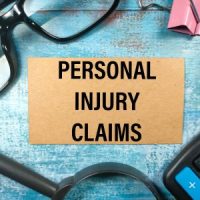Proving Foreseeability in a Negligent Security Claim

Foreseeability is a legal word that basically means possibility. Foreseeability is an element in all negligence claims, and it’s a key element in negligent security claims. The duty of care, which applies to property owners, requires them to make the premises reasonably safe. If a lack of care caused a foreseeable injury, perhaps an assault or sexual assault, the property owner is liable for damages.
These damages, which are usually unavailable in criminal court or anywhere else, usually include compensation for economic losses, such as medical bills, and noneconomic losses, such as pain and suffering. A Sugar Land personal injury lawyer can obtain additional punitive damages in these cases as well, if there’s clear and convincing evidence that the owner intentionally disregarded a known risk.
Prior Similar Acts in the Neighborhood
Usually, one thing leads to another. If one of the aforementioned violent acts, or any other such act, occurred in the area, it’s at least possible that the same thing might happen at a nearby location.
A prior similar act should be a red flag for owners. In response, they should beef up security at their buildings, perhaps by installing a security light in a dark parking lot.
The Neighborhood’s Crime Rate
Crime rates go up and down, often without any rhyme or reason. Crime theories abound. One is the broken windows theory, which holds that if police tolerate broken windows, high grass, and other code violations, criminals feel comfortable. But that’s just a theory.
It is a fact that a high crime rate usually means an on-property injury is foreseeable, and the property owner where the assault or other incident occurred is probably financially responsible for it.
Kind of Business
Some businesses, such as check cashing stores, are tempting targets for thieves. These robberies sometimes go bad. Some places that serve alcohol, such as a rambunctious bar, are dangerous as well. These businesses need enhanced security, in most cases, an armed guard or a bouncer.
Other kinds of businesses are relatively safe. Very few assaults or other violent crimes occur at coffee shops or bakeries. Such crimes at such locations are usually completely unforeseeable one-off affairs. At most, such establishments might require security cameras, unless another factor applies.
The Location of the Business or Home
An apartment complex near a major freeway is more vulnerable than an apartment complex on a quiet cul-de-sac. More traffic means more potential for injury. Keep in mind that “foreseeable” means “possible,” not “likely” or “probable.”
A Prior Similar Incident at the Same Location
A prior incident is concrete evidence of foreseeability. If it happened once, it could certainly happen again, unless the owner beefed up security or made other changes.
The burden of proof in all these foreseeability matters is only a preponderance of the evidence (more likely than not). The scales of justice illustrate this burden of proof. If a scale tips ever so slightly in one direction, even if you must use a magnifying glass to see the shift, the plaintiff has satisfied the burden of proof.
Count on a Savvy Fort Bend County Attorney
Injury victims are entitled to significant compensation. For a free consultation with an experienced personal injury attorney in Missouri City, contact the Henrietta Ezeoke Law Firm. The sooner you reach out to us, the sooner we start working for you.
